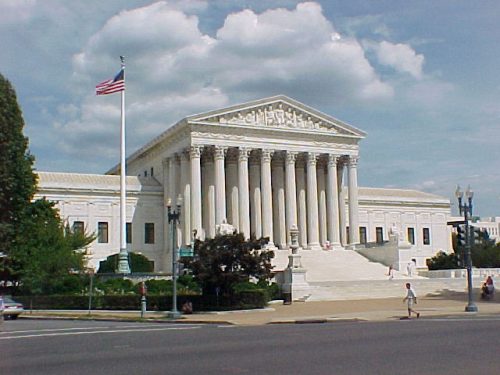

Via Flickr

This work is licensed under a Creative Commons Attribution 2.0 Generic License.
By Cindy Chen
WASHINGTON, DC – During a Supreme Court hearing in the case of Samia v. United States, the justices deliberated about the admissibility of a confession in the context of a murder-for-hire case.
In this particular case, two reported contracted mercenaries, Adam Samia and Carl D. Stillwell, posed as property buyers and allegedly assassinated a real estate agent in the Philippines.
The core of the debate centered around the confession made by Stillwell, which indirectly implicated Samia, whose legal team argued the admission of this confession as evidence constituted a violation of the 6th Amendment’s confrontation clause.
The clause, said his lawyers, safeguards a defendant’s right to confront witnesses. And since Stillwell refused to testify, Samia was rendered incapable of cross-examining him, thus compromising this right, his team argued.
To resolve this issue, the presiding trial judge mandated the agent employ imprecise language like “another person” when referring to Samia. Additionally, he specified that the jury should assess the confession only in relation to Stillwell.
However, in an amicus brief, The American Civil Liberties Union and the National Association of Criminal Defense Lawyers criticized this event, stating: “The Second Circuit’s view that the introduction of the redacted confession did not violate Bruton because it did not identify petitioner by name is wrong.”
The ACLU added, “The Court should reverse the Second Circuit’s decision and hold that, as a class, directly accusatory confessions—that is, confessions that ‘refer directly to’ a non confessing co defendant’s role in the crime—violate the confrontation clause.”
Despite those efforts, the trial court ruled otherwise.
On June 23, 2023, the Supreme Court issued a split decision in favor of the United States, establishing a precedent for admitting redacted co-defendant confessions when they meet certain criteria, despite the confrontation clause.
Some justices voiced their support for this decision. Writing on behalf of the majority, Justice Clarence Thomas stated: “The confrontation clause ensures that defendants have the opportunity to confront witnesses against them, but it does not provide a free-standing guarantee against the risk of potential prejudice that may arise inferentially in a joint trial.”
In contrast, Supreme Court Justice Elena Kagan dissented, arguing, “Contrary to today’s decision, the serious Sixth Amendment problem remains. Now, defendants in joint trials will not have the chance to confront some of the most damaging witnesses against them. And a constitutional right once guaranteeing that opportunity will no longer. It will become, in joint trials, a shell of its former self.”